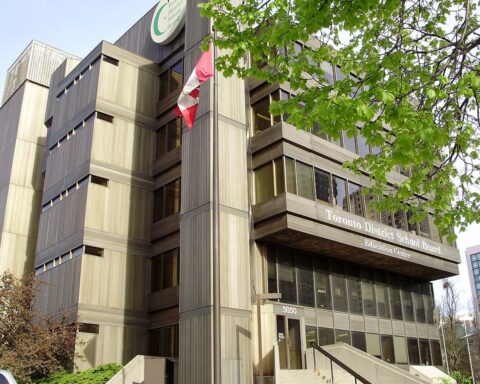It was the second day of my new job and my new co-worker turned to me and asked me that fateful question: “So, what’s your background?” I began telling her all about my background – where I studied (McGill University) and how I decided to move back home to Toronto after graduating, landing a job here.
She looked at me with a blank expression. I clearly misunderstood the question. “No,” she said, “You look different. Where are you from?”
“What does looking different mean? And even if I do, why does it matter? What drives people to want to know your ethnic background?”
I thought of answering with my typical response – born and raised in Toronto. But that usually gets blank stares too. So I said what people normally want to hear – the answer to the question I often get from strangers or new faces. “My parents were born in the Middle East – I’m Lebanese and Jewish.”
“Ohhh,” says my co-worker, curiosity abated. “That explains it all.” Finally she feels satisfied enough to go back to work. But I don’t. Every time the question appears I think of saying – what does looking different mean? And even if I do, why does it matter? What drives people to want to know your ethnic background?
As Canadian As You
I’m not alone. As Canada aims to keep its number of immigrants at 250,000 per year, more and more immigrants are entering the Canadian workplace with questions about who they are and where they come from – and second-generation Canadians, like myself, often get asked the same ones.
“There’s no one best way to respond to the ‘what’s your background,’ type questions. It all depends on why the person is asking,” explains Tana Turner, who has been working with businesses to leverage diversity for organizational success for 27 years, and is the principal consultant of Turner Consulting Group. “I’m originally from Jamaica, I don’t have a Jamaican accent, but even today people ask me where I’m from instead of assuming I’m Canadian. Depending on who’s asking I may say I’m from Scarborough. It’s a way of showing them, why are you asking? I’m as Canadian as you.”
“I know I sometimes ask people where they’re from, because it’s interesting. We’re a country of immigrants; everyone has interesting stories… Sometimes, people ask as a way to make immigrants seem like they’re not Canadian.” – Tana Turner, Turner Consulting Group
While the question may offend some people in the workplace, she points out that it also may just be a way to get to know you and make a connection. “I know I sometimes ask people where they’re from, because it’s interesting. We’re a country of immigrants; everyone has interesting stories. Sometimes, the person may share the same background and they’re trying to make that connection. Sometimes, people ask as a way to make immigrants seem like they’re not Canadian.”
Knowing Your Rights
For Gary Pieters, president of the Urban Alliance on Race Relations, a non-profit organization that works with the public and private sectors to provide educational programs to address racism in society, uncomfortable questions in the workplace are just one of many issues of inequality that new Canadians have to deal with.
“… Asking people where they’re from or making comments about people’s backgrounds, assuming they’re a newcomer when they’re not, reinforces this notion that certain people belong here and certain people don’t.” Gary Pieters, Urban Alliance on Race Relations
“Definitely asking people where they’re from or making comments about people’s backgrounds, assuming they’re a newcomer when they’re not, reinforces this notion that certain people belong here and certain people don’t,” says Pieters. “We also find other issues such as the racialization of poverty. Many racialized people end up landing precarious jobs – jobs that are contract, short term, have no benefits, low wages too and race, place of origin or nationality become a barrier to progression in the workplace.”
He says first and foremost, Canadian immigrants need to educate themselves on their rights in the workplace.
“There are fair accommodations practices and fair employment practices specifically to allow everyone the right to work, that are designed to avoid those types of things,” he adds.
Sometimes, the best practice is simply to educate those around you. If questions about race or nationality bother you in the workplace, perhaps the best answer is to ask what it means to look Canadian or “look like you’re from here.” After all, spend just five minutes on the subway any morning and you’ll see an abundance of “different” faces. If these different faces are the majority, perhaps being “from here” can describe any number of “looks”.
Vicky Tobianah is an experienced writer, editor, and content strategist. She has a Bachelor of Arts, Honours from McGill University in Political Science and English Literature. She is passionate about the future of digital media. Find her work at: www.vickytobianah.com





